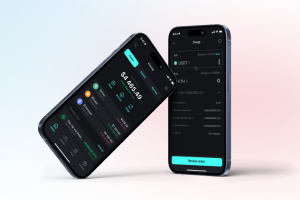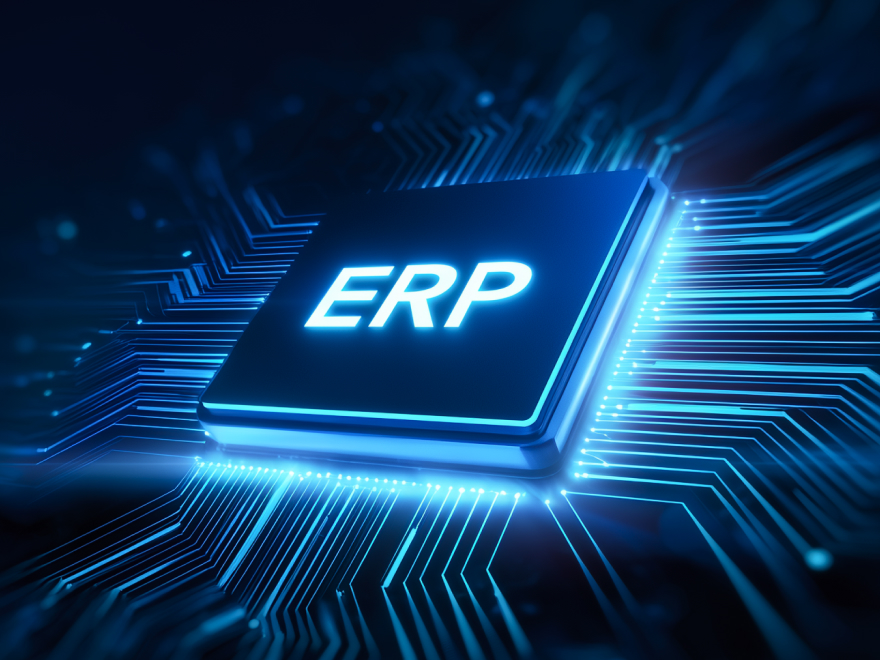Your message has been sent.
We’ll process your request and contact you back as soon as possible.
The form has been successfully submitted.
Please find further information in your mailbox.


Tokenization is an upward trend in protecting data in the online world of digital transactions and information sharing. Among the various security solutions available, sprint tokenization stands out as a leading choice, known for setting high standards for the security of sensitive data. In this article we will introduce sprint tokenization, its benefits, and various techniques for securing data. Additionally, we will provide a glimpse into our real-world projects, showcasing how we’ve implemented sprint tokenization for our clients.
Sprint tokenization is a secure technology that encrypts and protects sensitive data, like credit card numbers, social security numbers, and other private information, from unauthorized access, even during data breaches. This technology offers a robust combination of safety and convenience for using online services by allowing customers to safely store their personal details, reducing repeated entry and enhancing both transaction speed and security.
Sprint tokenization involves replacing sensitive information with unique, non-sensitive entities known as tokens. These can be kept or transferred securely without disclosing the underlying data. By replacing the original data with these tokens while storing or transmitting, sensitive information is effectively protected.
This powerful security measure not only ensures privacy but also significantly lowers the chances of data breaches. In addition, it helps organizations adhere to stringent data protection regulations.
Sprint tokenization provides a comprehensive solution for organizations looking to secure sensitive data. Here are some of the most significant advantages of sprint tokenization.
Sprint tokenization employs a robust algorithm that swiftly generates tokens, which means that the tokenization process does not impede business operations. Utilizing tokens for data security is quicker and more efficient than the process of encrypting and then decrypting data.
The precision of sprint tokenization ensures that tokens accurately represent the original data. This reliability is crucial for maintaining data integrity and guaranteeing that the tokens can be correctly utilized when needed.
Sprint tokenization requires far less computational resources for scaling than conventional encryption techniques, making it an ideal choice for organizations with extensive data sets or intricate transaction environments. The system seamlessly adapts to evolving business needs and growth, allowing uninterrupted operations.
Since Sprint tokenization does not require expensive hardware for encryption and decryption, the technology can be considered more cost-effective. This makes it a viable option for businesses with lower budgets. Additionally, sprint tokenization offers the same security level as traditional encryption methods.
Sprint tokenization encompasses a range of techniques designed to fortify data security while minimizing personal information exposure. Our article further explores the specific sprint tokenization methods that have gained prominence.
This method is based on the generation of an entirely random string of characters to replace sensitive data. The key objective is to obfuscate the original information entirely. By employing unpredictable strings as tokens, sensitive data is safer, as the connection to the original data becomes virtually untraceable.
Reference tokenization diverges from the conventional approach by creating references to the original data. These references are securely managed, enabling authorized individuals to retrieve the actual data as needed. This method strikes a balance between robust data security and controlled access.
Hash tokenization leverages cryptographic hash functions to transform confidential information into fixed-length character strings, known as hash values. These hash values stand as the tokens, ensuring consistent and irreversible data transformation. A notable aspect of this method is its deterministic nature: different input data will never produce the same hash values, so the system can identify the data that is required precisely.
Encryption tokenization employs encryption techniques to render sensitive data unreadable without the corresponding decryption key. Encrypted data serves as the tokens and can only be deciphered by authorized users in possession of the requisite decryption key, thereby introducing an additional layer of security.
Format-preserving encryption tokenization is distinguished by its ability to maintain the original data’s format while encrypting it. This means that tokenized data retains its original structure and length, making it well-suited for systems that require specific data formats. By combining encryption with format preservation, this method achieves a unique balance between data security and seamless integration with existing data management processes.
Sprint tokenization techniques cater to a broad spectrum of security needs and data formatting requirements. This allows companies to select a method that precisely fits their unique needs. Notably, this technology delivers sturdy security for sensitive data without significant financial outlay, making sprint tokenization a strategic choice for safeguarding critical information.
Sprint tokenization can be used across a variety of industries and applications that require the safety of sensitive information. To gain a deeper understanding of how and where sprint tokenization is used, we would like to share real-life examples showing how we have implemented sprint tokenization for our clients.
In the retail sector, we’ve taken a significant step in enhancing data security by integrating hash tokenization into our client’s marketplace. Our client aimed to bypass third parties in their marketplace’s payment system securing client’s sensitive information within their own system. We introduced hash tokenization, converting payment data into unique, secure hashes. This makes it almost impossible for someone to figure out the original information just from the hash without access to specialized tools and extra data. These hash values are tamperproof, creating a one-way street – once data is turned into a hash, there’s no going back to its original form. In case of a data breach, this means that the actual payment details, in their true form, remain secure and inaccessible. By implementing this method, we’ve greatly upped the security and reliability of our client’s marketplace, ensuring that payment information is well-protected against unauthorized access and cyber threats.Furthermore, the marketplace experienced a surge in popularity as new customers were drawn to its utmost security measures, appreciating the added safety to their transactions.
In another realm, we’ve fortified patient record security across a network of healthcare clinics through the deployment of AES-256 encryption. We chose this robust encryption standard due to its resilience to brute-force attacks. The process transforms sensitive patient information into a ciphered format that’s practically indecipherable without the correct decryption key. This key, akin to a complex digital password, is only accessible to authorized personnel within the clinic’s network. We carefully integrated this encryption into the clinic’s existing data management systems, ensuring seamless operation without compromising user experience. The implementation was part of a broader strategy to fortify data privacy and increase compliance with stringent healthcare regulations. This instilled confidence among patients that their health records are safeguarded to the highest level of security.
Sprint tokenization emerges as a transformative force in data security, showcasing its prowess through real-world applications in diverse sectors. By employing innovative techniques of Sprint tokenization, businesses ensure that their sensitive information is securely managed and stored. Technology adapts to various industry requirements, whether securing payment details in retail or ensuring the confidentiality of patient records in healthcare. This adaptability, combined with the technology’s cost-effectiveness, positions sprint tokenization as a pragmatic yet powerful tool for organizations seeking to fortify their data security framework.
Yes, sprint tokenization is suitable for small businesses as it allows them to securely store and manage customer data without significant investment. By utilizing sprint tokenization, small businesses can keep sensitive information safe from potential breaches and unauthorized access. This not only helps in maintaining customer trust but also ensures compliance with data protection regulations without burdening small businesses with excessive costs.
Sprint tokenization enhances data security by replacing sensitive data elements with non-sensitive equivalents, known as tokens, that have no exploitable value. The tokens can then be used in the business ecosystem without exposing the data itself. Even if a token were to be intercepted or accessed without authorization, it would be meaningless without a tokenization system that knows how to translate it back into the original sensitive data.
Yes, Sprint tokenization can be integrated into real-time systems. Tokenization solutions are designed to work quickly and efficiently, so they can process and tokenize personal data in real-time as transactions occur or as data is transmitted, without significant latency.
As we have already said, Sprint tokenization is an economically advantageous option, especially for small businesses and startups. By adopting this technology, these companies can allocate their budgets more efficiently, allowing them to invest more in crucial aspects of their product development.
Sprint tokenization could be applied across various industries, particularly those handling sensitive data. For instance:
To implement Sprint tokenization you should follow these steps:

Rate this article:
4.8/5 (45 reviews)












Your message has been sent.
We’ll process your request and contact you back as soon as possible.

By signing up you agree to our Privacy Policy, including the use of cookies and transfer of your personal information.